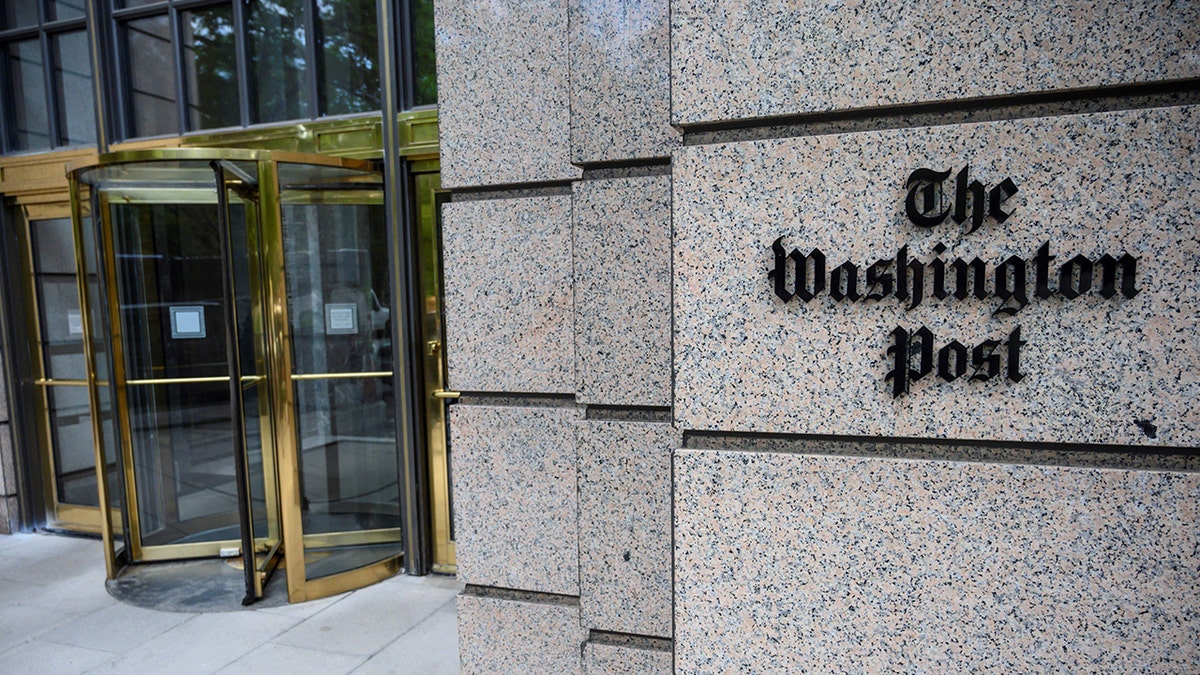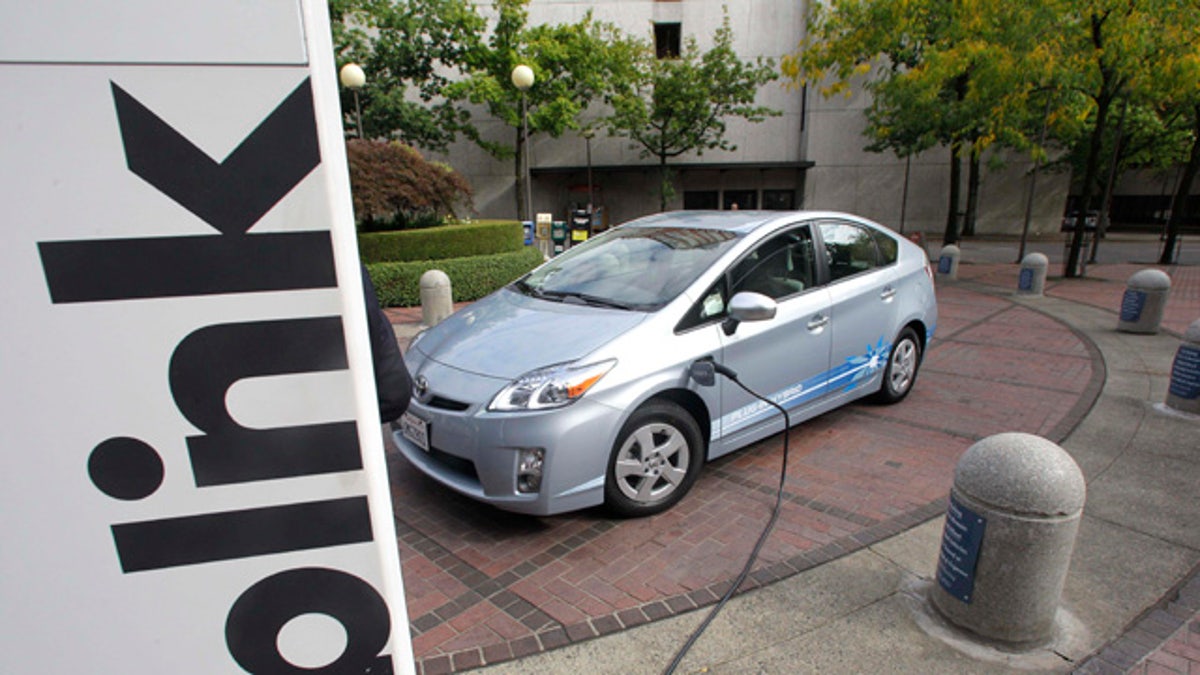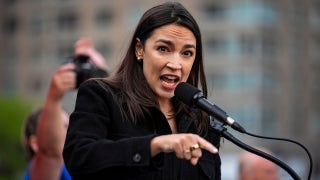Media top headlines December 10
In media news today, MSNBC primetime hosts avoid the Jussie Smollet verdict, The View Gushes over Hillary Clinton's would-be 2016 victory speech, and CNBC's Jim Cramer gushes about the economy.
The Washington Post on Thursday wondered if a lack of charging stations for electric vehicles in Black and Latino neighborhoods across America is the next thing minorities need to fight for.
The article, "Without access to charging stations, Black and Hispanic communities may be left behind in the era of electric vehicles" by energy reporter Will Englund, notes that a pair of Chicago residents have noticed "a complete absence of electric vehicle chargers" in predominantly Black neighborhoods.

Washington Post on Thursday wondered if a lack of charging stations for electric vehicles in Black and Latino neighborhoods across America, known as "charging deserts," are the next thing minorities need to fight for. (ERIC BARADAT/AFP via Getty Images) (ERIC BARADAT/AFP via Getty Images)
A Chicago duo even pointed out "possible locations for a charger" in their apartment building parking that is currently void of a charging station. The pair feels their community "might be left behind in the era of electric cars" if they don’t force change in the near future.
"We’re used to elbowing our way to the table," activist Naomi Davis told the Post.
The liberal newspaper then noted Black and Latino neighborhoods often lack charging stations in other cities across the country, too.
"While electric vehicle use is growing rapidly in well-to-do, mostly White communities, minority neighborhoods are being left behind," Englund wrote before the Post published a handy chart indicating Austin, Bostons, Chicago, Washington, D.C., Denver, Houston, Kansas City, New York, Oakland, San Diego and San Jose all suffer from fewer charging stations in Black or Latino areas.
"Electric vehicle advocates call them charging deserts," Englund wrote. "In the coming age, the lack of charging stations and electric vehicles that depend on them threatens to worsen an already disproportionate exposure to air pollution in minority neighborhoods and relegate Black and Latino drivers to gasoline-powered cars, which, though cheaper to buy, are more expensive to fuel and maintain."
The Post reporter then declared, "But without easily accessible charging stations in Black and Latino communities, advocates in Chicago and across the country say, it will be hard to make progress."

One of the biggest impediments to establishing a market for electric cars is the lack of charging stations, like this one in Montpelier, Vt. (AP Photo/Toby Talbot)
The reporter feels people who live in urban neighborhoods often lack driveways or garages, so public chargers are essential. He noted that General Motors plans to establish 40,000 charging stations and "promised that some will be in underserved urban as well as rural areas" and local politicians are also trying to make an impact.
NEW YORK TIMES OPINION WRITER CALLS LEAF BLOWERS 'DEATH' MACHINES
"So far, their efforts are only a start. Here in Chicago, a new ordinance requires new multifamily residences to include charging stations. The state of Illinois has adopted subsidies for EVs that are scaled to income," Englund wrote, adding that organizations in other areas such as Boston, Rochester, N.Y., San Joaquin Valley in California, and St. Paul, Minn. are also looking to make public chargers readily accessible.
However, those efforts are not good enough to satisfy everyone.
"Most of these efforts are incremental — a couple of ordinary chargers in Black neighborhoods, a small collection of EVs for car sharing. But some argue that cities need bolder projects to get to equity, or else will always be lagging," Englund wrote.

A Toyota Prius Hybrid charges during the unveiling of the Blink electric vehicle charging station that will charge up vehicles in Portland and other key metropolitan areas in Portland, Ore. (AP Photo/Rick Bowmer)
A predominantly Black area of Brooklyn features an "industrial-size charging station that is used for the cabs and also open to the public," but the Post reporter is concerned "that specific plan wouldn’t work in a lot of cities, where taxis are less of a factor."
CLICK HERE TO GET THE FOX NEWS APP
The lengthy article quotes a variety of activists and advocates who want to make chargers readily available for Black and Latino communities, but eventually noted the demand isn’t always there.
"A charger installed last May by McIlvaine at a nonprofit called Plant Chicago, in the Back of the Yards neighborhood, had had three customers as of mid-October," Englund wrote. "But advocates are optimistic that with enough chargers out there, with enough visibility, Black and Latino people will turn to EVs, especially as used electric cars start to come on the market at more affordable prices."










































